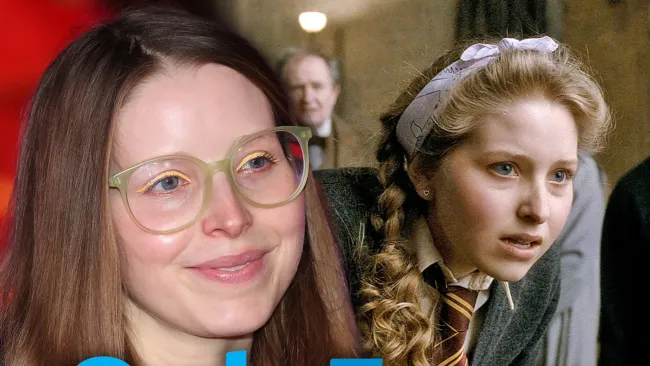The Reclaimed Narrative of Jessie Cave: From Hogwarts to OnlyFans and the Creator Economy
The career of British actress, author, and comedian Jessie Cave began with a pragmatic focus on the technical side of performance, not with on-screen aspirations. She initially intended to study stage management at the Royal Academy of Dramatic Arts and worked as a stagehand in London before deciding to pursue acting. Her acting debut came in 2008 with the CBBC drama Summerhill. However, the defining moment of her early career was her casting as Lavender Brown in the film Harry Potter and the Half-Blood Prince.
Chapter 1: The Magic of Her First Act: Life as Lavender Brown
1.1 The Defining Harry Potter Role
This role, which Cave herself described as feeling "like winning the Lottery," was a monumental breakthrough. She secured the part through a highly competitive open casting call on July 1, 2007, where she was selected from an agency and ultimately beat over 7,000 other girls who auditioned. At the time, her professional experience was limited to a few commercial advertisements, including one for Veet hair-removal cream. The casting decision also marked a notable change for the character of Lavender Brown, as Cave was chosen to play the role when it became more significant to the plot in the later films, unlike the previous actress who had only appeared as a non-speaking extra. Her background and training were considered to have made her a better option for the expanded part.
1.2 Beyond the Ditzy Demeanor: The Unbreakable Lavender
The character of Lavender Brown in the Harry Potter films and books is often simplistically perceived as a giggly, melodramatic, and lovesick teenager, known primarily for her relationship with Ron Weasley. She is introduced as an "outrageous gossip" and is easily prone to jealousy, which frames her popular public image. However, a deeper analysis reveals a far more complex and courageous individual beneath her seemingly frivolous exterior.
Fan analysis of the books portrays Lavender as a brave and capable witch, consistently attuned to the unfolding dangers in the wizarding world. She was the first new student sorted into Gryffindor in her year and quickly became a founding member of Dumbledore's Army, arriving early for the group's first meeting. She also showed her magical proficiency by casting an advanced Locomotion Charm and was among the first in the group to produce a non-corporeal Patronus, a testament to her magical skill. Her bravery culminated in her decision to stay and fight during the Battle of Hogwarts, where she was attacked by the werewolf Fenrir Greyback. A crucial distinction exists between the book and film portrayals of her fate; while the films imply her death, the book states she was found "feebly stirring," suggesting she survived the attack. This narrative shift from a seemingly airheaded side character to a deeply brave and resilient "survivor" is a compelling one.
This hidden depth of the character provides a fascinating parallel to the career trajectory of Jessie Cave herself. Like Lavender, Cave's public identity began with a narrow, predefined role. Just as the character was underestimated and labeled as merely "ditzy," Cave has been consistently typecast in the industry, struggling to break free from the perception of being a "quirky, weird glasses girl." Her professional journey, defined by pivots and bold choices, demonstrates a bravery and determination that mirrors the inner strength of her most famous on-screen character, revealing a complexity that goes far beyond a surface-level impression.
The following table visualizes the key differences between the character as written and as commonly perceived, providing context for her legacy.
| Aspect | Popular Perception (Based on Film/Surface Reading) | Deeper Analysis (Based on Book Details) |
|---|---|---|
| Personality | Ditzy, silly, gossipy, lovesick | Brave, open-minded, courageous, dedicated |
| Magical Ability | Appears to have limited magical skill | Highly capable witch; casts advanced Locomotion Charm; produces a non-corporeal Patronus |
| Story Arc | Primarily defined by her infatuation with Ron | Fights in Dumbledore's Army; shows loyalty to Professor Trelawney |
| Fate | Implied to have died in the Battle of Hogwarts | Survived the werewolf attack; was "feebly stirring" |
1.3 The Weight of a Legacy
After her role in Harry Potter, Cave's career continued with a variety of minor television roles in British productions, including Pramface, The Job Lot, and a single episode of the popular show Black Mirror. She has also appeared in the West End and co-stars in the ITV2 sitcom Buffering. While she has found success in various projects, her career has also been marked by the inherent challenges of the acting profession, particularly rejection. She has publicly stated that she has come to terms with this reality, finding a sense of calm and a "ridiculously optimistic" outlook as a result of dealing with professional upsets.
Despite moving on from the franchise, the legacy of her Harry Potter role continues to follow her. The unwavering devotion of the fan base is a constant presence in her life. For instance, teenagers from France once traveled to a small pub in London where she was doing a warm-up gig for her stand-up show, underscoring the enduring power of the franchise and the lengths its fans will go to connect with the cast.

Chapter 2: The Art of Reclaiming Narrative
2.1 The Multi-hyphenate Artist and Comedian
Jessie Cave's professional trajectory extends far beyond her acting work. Over the past decade, she has cultivated a reputation as a multi-hyphenate artist, exploring a diverse range of creative fields as a cartoonist, author, and comedian. Her work in comedy, in particular, is a powerful example of her ability to transform her public identity into creative material. Her debut at the Edinburgh Festival Fringe with the show Bookworm was inspired directly by her encounters with obsessive Harry Potter fans. This demonstrates a professional strategy of taking ownership of her most defining role and repurposing its unique challenges and opportunities into her own art.
In addition to her performance work, she has published a book of cartoon doodles titled Love Sick and her first novel, Sunset. She also co-hosts a podcast with her younger sister, Bebe, called We Can't Talk About That Right Now. The podcast offers an intimate look into their lives and covers a range of topics from family dynamics and the challenges of parenthood to mental health and popular culture, showcasing her comfort with vulnerability and providing a direct, unmediated line of communication with her audience.
2.2 Jessie Cave's Novel Sunset: A Raw Look at Grief and Sisterhood
Jessie Cave's debut novel, Sunset, is a poignant exploration of themes deeply personal to her life, particularly sisterhood and grief. The story centers on two sisters, Ruth and Hannah, who are polar opposites but share an intense, powerful bond. A tragic event during a summer holiday shatters their world, sending the protagonist, Ruth, into a period of self-imposed isolation as she struggles to come to terms with her loss.
The book received mixed reviews from critics and readers. While some found the protagonist unlikable or the narrative meandering, there was consistent praise for the novel's raw and authentic depiction of grief and its understated wit. A number of readers who were familiar with Cave from her podcast noted that her writing voice felt deeply intertwined with her real-life persona, making the characters feel less like fictional creations and more like real individuals. This is a crucial aspect of her artistic identity: her creative work across all mediums is often profoundly autobiographical. Whether through a novel about sisters, a comedy show about obsessive fans, or a podcast with her own sibling, her public identity and her art are inextricably linked. She is an artist whose primary subject is herself, her family, and her experiences, creating a powerful case study in the modern media landscape.
2.3 Jessie Cave's Partner: Comedian Alfie Brown
Jessie Cave's personal life is frequently intertwined with her public career, most notably through her long-term partner, the English stand-up comedian Alfie Brown. The couple lives in London with their four children, and their relationship has also been a source of creative collaboration and public-facing content. They previously took part in Comedy Central's Roast Battle, further blurring the line between their personal and professional lives.
Brown has achieved notable success in his own right, establishing himself as a regular on the UK comedy circuit and at the Edinburgh Fringe Festival. He was nominated for the Edinburgh Comedy Awards and won the Chortle Awards for his show Sensitive Man, which was praised as being "very clever" and a "hoot from the outset." However, his career has also been marked by controversy, with public criticism over past jokes about sensitive topics like the Grenfell Tower fire and antisemitism claims. This complexity adds another layer to their public-facing partnership.
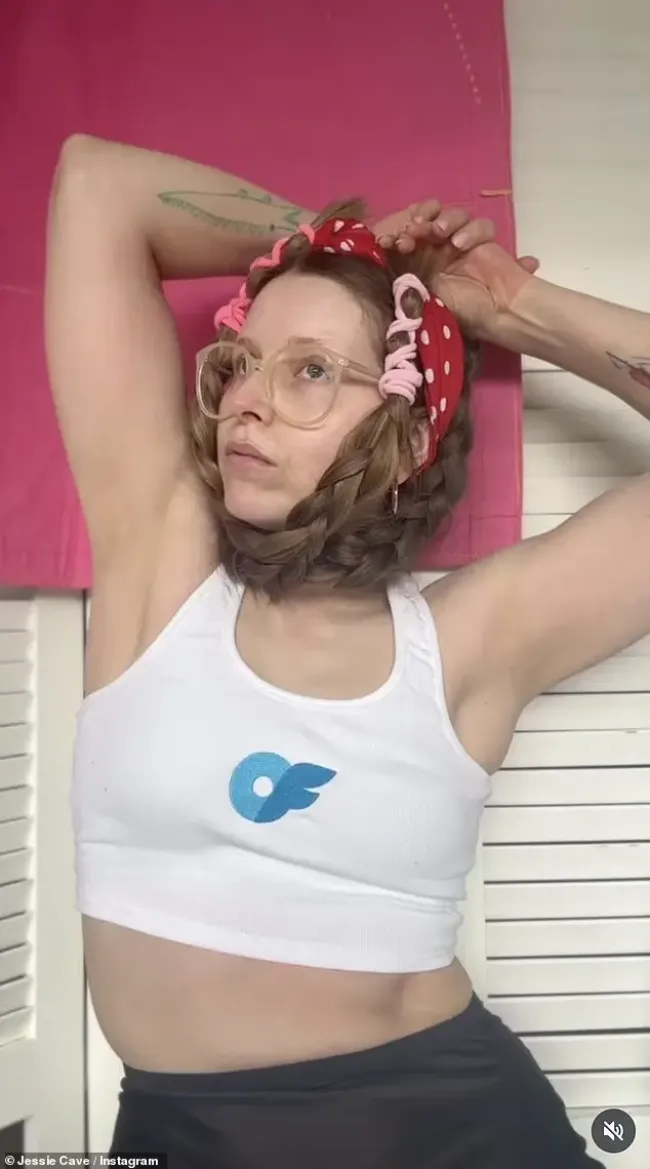
Chapter 3: From Mainstream to the Niche: The Jessie Cave OnlyFans Story
3.1 The Crossroads: A Financial and Professional Imperative
In a significant career pivot that captured media attention, Jessie Cave announced her decision to join the subscription-based platform OnlyFans. The motivation behind this unconventional move was a combination of personal and financial pressures. She stated that she needed to "get out of debt" and was looking for a way to fund essential home renovations for her family, including fixing a roof and covering arsenic/lead wallpaper.
This decision came after a period of professional uncertainty, during which she even considered a mainstream option for financial gain: a spot on the reality TV show I'm a Celebrity Get Me Out of Here!. She revealed that she was in talks for the show about three years prior but ultimately did not get the role. She now considers this a "blessing," claiming that her earnings from her OnlyFans content have far exceeded what she would have been paid for the reality series. This financial reality highlights the powerful shift in the entertainment landscape, where creator-driven platforms can offer a more lucrative alternative to traditional media.
3.2 A Hair Fetish, Not a Striptease
A key aspect of Cave's OnlyFans venture is her meticulous curation of non-sexual content. She has repeatedly clarified that her account is a "fetish" platform, not a "sexual one," and that it is dedicated exclusively to "hair-based content." She explained that the idea was born from her Instagram, where she had been posting videos of her long hair and noticed a significant number of comments and interest from people with a hair fetish, a phenomenon known as trichophilia.
To illustrate the nature of her content, Cave has described some of the bizarre requests she has received from subscribers, which she capitalizes on in her videos. These include drenching her hair with strawberry milk and spanking herself with her braids. She has branded herself as an "OnlyFans Long Hair Specialist," emphasizing the niche nature of her work and promoting it as a "magical" experience in her bio.
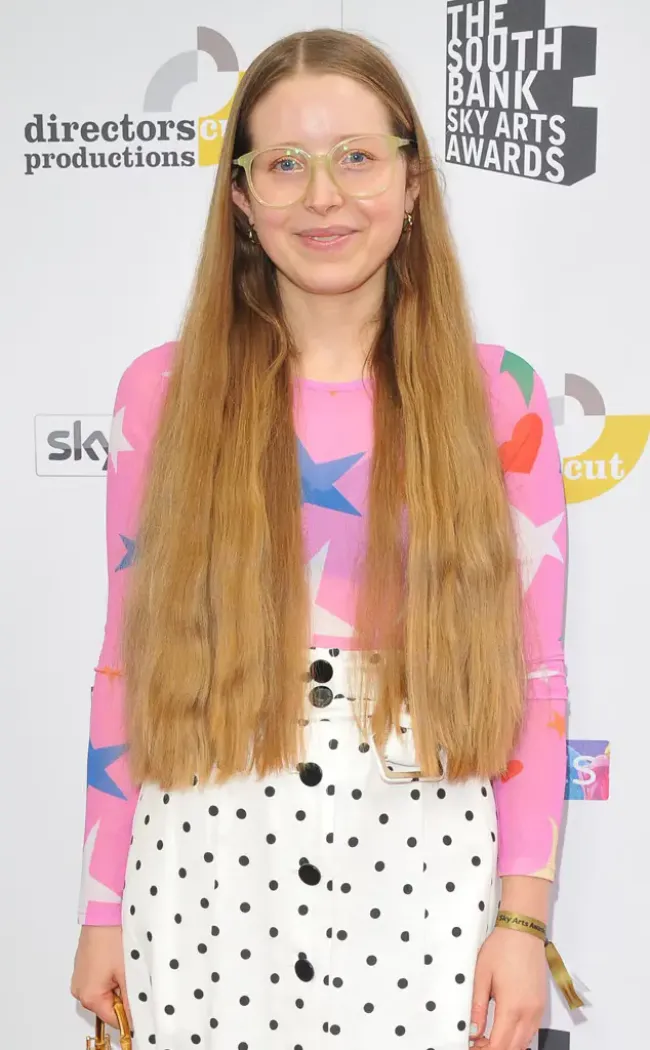
3.3 The Response and The Reality
Jessie Cave's decision to join OnlyFans was met with a wide range of reactions. While she received positive messages of support from many who praised her for "capitalis[ing] on people's fetishes in a way that feels comfortable," she was also subjected to negative feedback from trolls. Some messages criticized her as a mother for joining the platform, a line of attack that she has publicly condemned, arguing that mothers should not be shamed for pursuing new professional opportunities for themselves.
The professional repercussions of her move also became clear when she was not booked for a Harry Potter convention, with organizers stating it was a "family show" and that OnlyFans is "affiliated with porn." This incident underscores a central paradox of her career pivot: while she gains creative and financial autonomy on the platform, she is simultaneously judged and limited by its enduring stigma. The very freedom she sought has come with real-world consequences, demonstrating the powerful and often contradictory nature of public perception. She has also faced the reality of managing the platform itself, noting that she continues to receive unsolicited explicit requests and loses subscribers who expect nudity, despite her consistent public statements and clear rules.
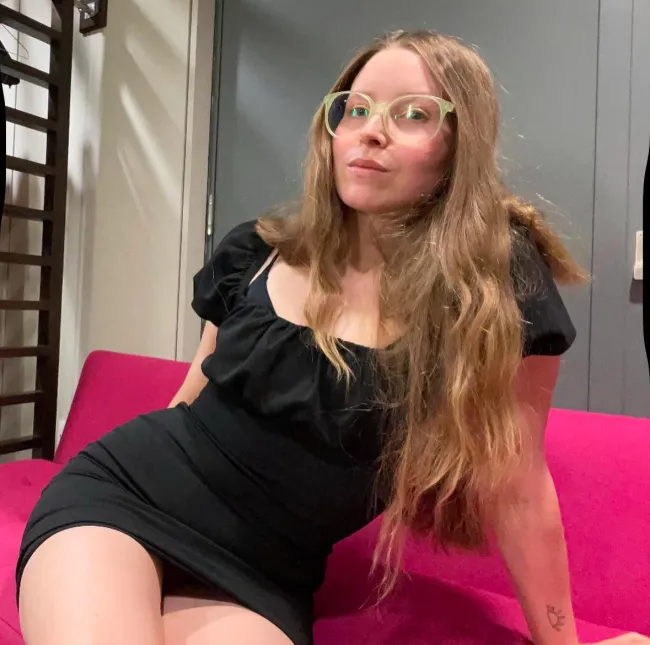
3.4 The New Business Model: Empowerment and Control
Jessie Cave's career evolution represents a dramatic inversion of the traditional entertainment industry model. In that traditional system, an artist has limited creative control and relies on conventional casting and production processes to reach a broad audience. An actor's career is often at the mercy of others—agents, casting directors, and studio executives—and rejection is an inevitable part of the process.
Her move to OnlyFans completely flips this paradigm. By creating a direct-to-consumer platform, she has established a direct, monetized relationship with her audience. This provides her with complete creative freedom and allows her to capitalize on a hyper-niche market that the mainstream industry would never serve. The financial success she claims—earning more than she would have from a reality TV show—proves the viability of this model and provides her with the financial independence she sought. The rejection from the Harry Potter convention, while a negative outcome, further highlights her choice: she has traded the broad, family-friendly, but controlling legacy of Potter for the niche, stigmatized, but completely autonomous world of the creator economy.
This professional shift also raises fascinating questions about the very nature of authenticity in the digital age. Cave's move is framed as a liberating search for self-expression and an escape from typecasting. However, she is also actively curating a specific, commercial persona as an "OnlyFans Long Hair Specialist" to capitalize on a very specific fetish. This presents a powerful paradox: is her new path truly a return to a more authentic self, or is it simply a different, more lucrative form of performance? Her journey shows the complex and often contradictory nature of professional and personal branding in a landscape where all parts of one's life can become content.
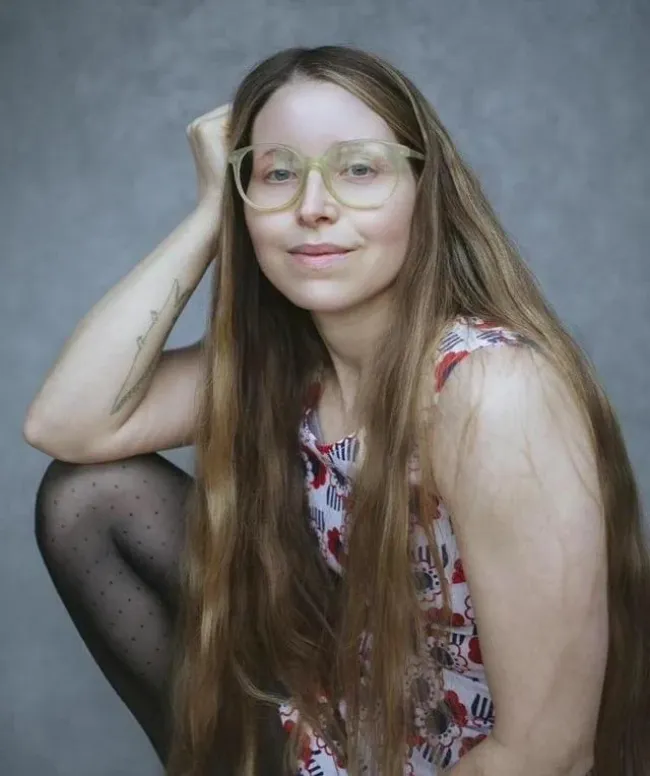
Conclusion: A Story of Authenticity and the Modern Creator
Jessie Cave's career is a compelling case study of a modern artist's journey. It is not a series of disconnected events but a logical progression of a creative individual seeking to take control of her own narrative and financial destiny. From a career launched by a defining and universal role to a struggle with typecasting, a foray into personal art, and a bold move into a niche digital platform, her story challenges conventional notions of fame and success.
Ultimately, her journey reveals a profound evolution in the nature of celebrity. It is no longer a one-way street of top-down fame but a multi-directional path of creative entrepreneurship, personal brand management, and the constant navigation of public perception and financial reality. Her life and career challenge audiences and the industry alike to reconsider what it means to be an artist, a professional, and a public figure in an era where the most valuable commodity may not be universal appeal, but radical, self-defined autonomy.
